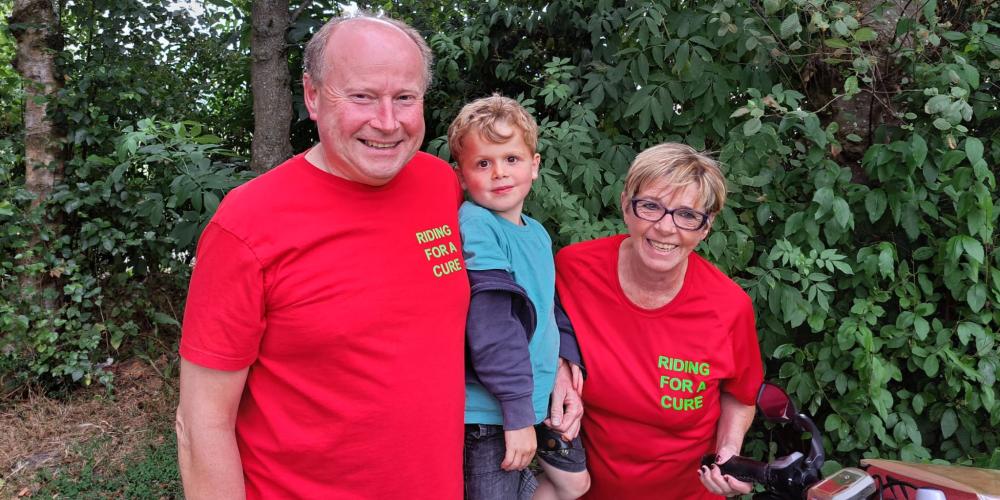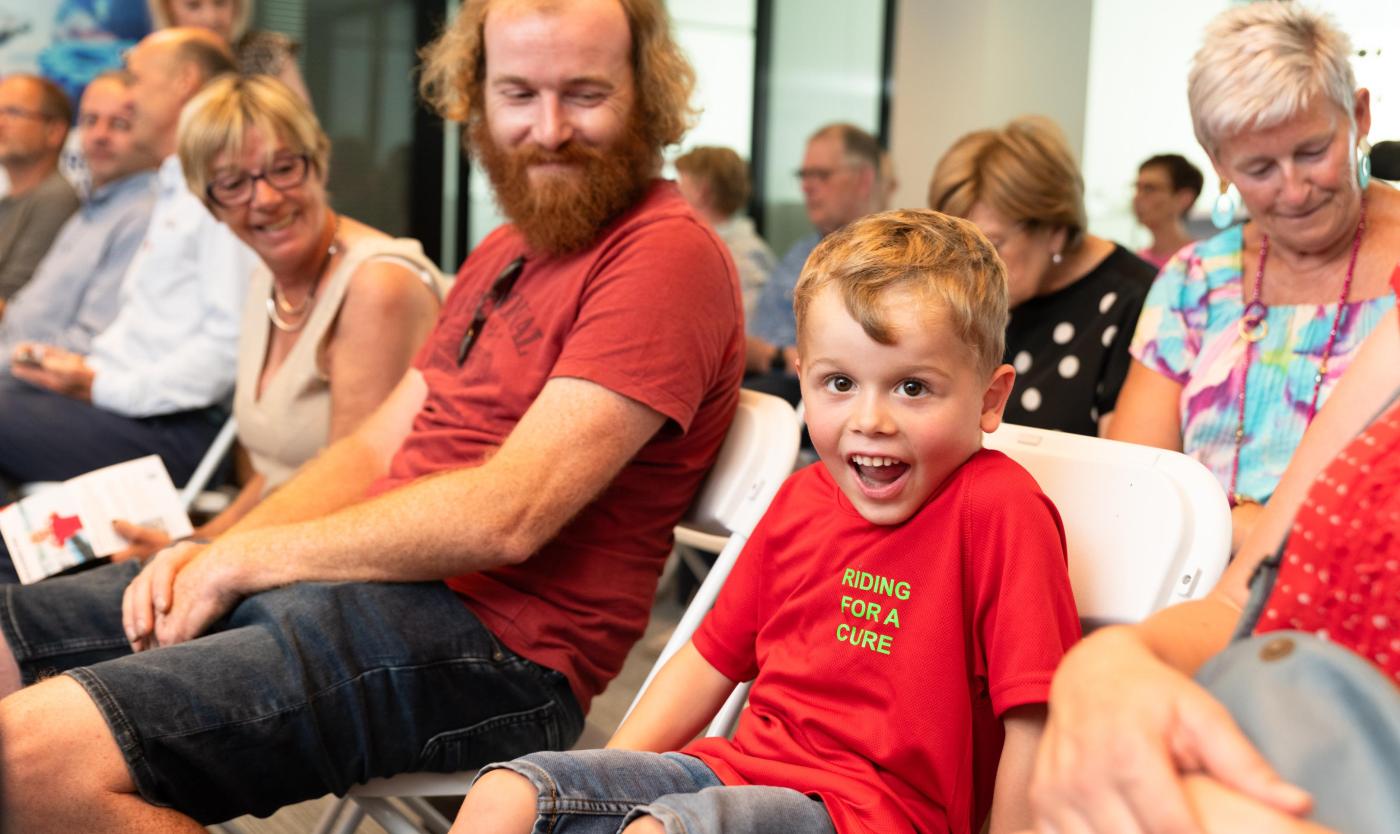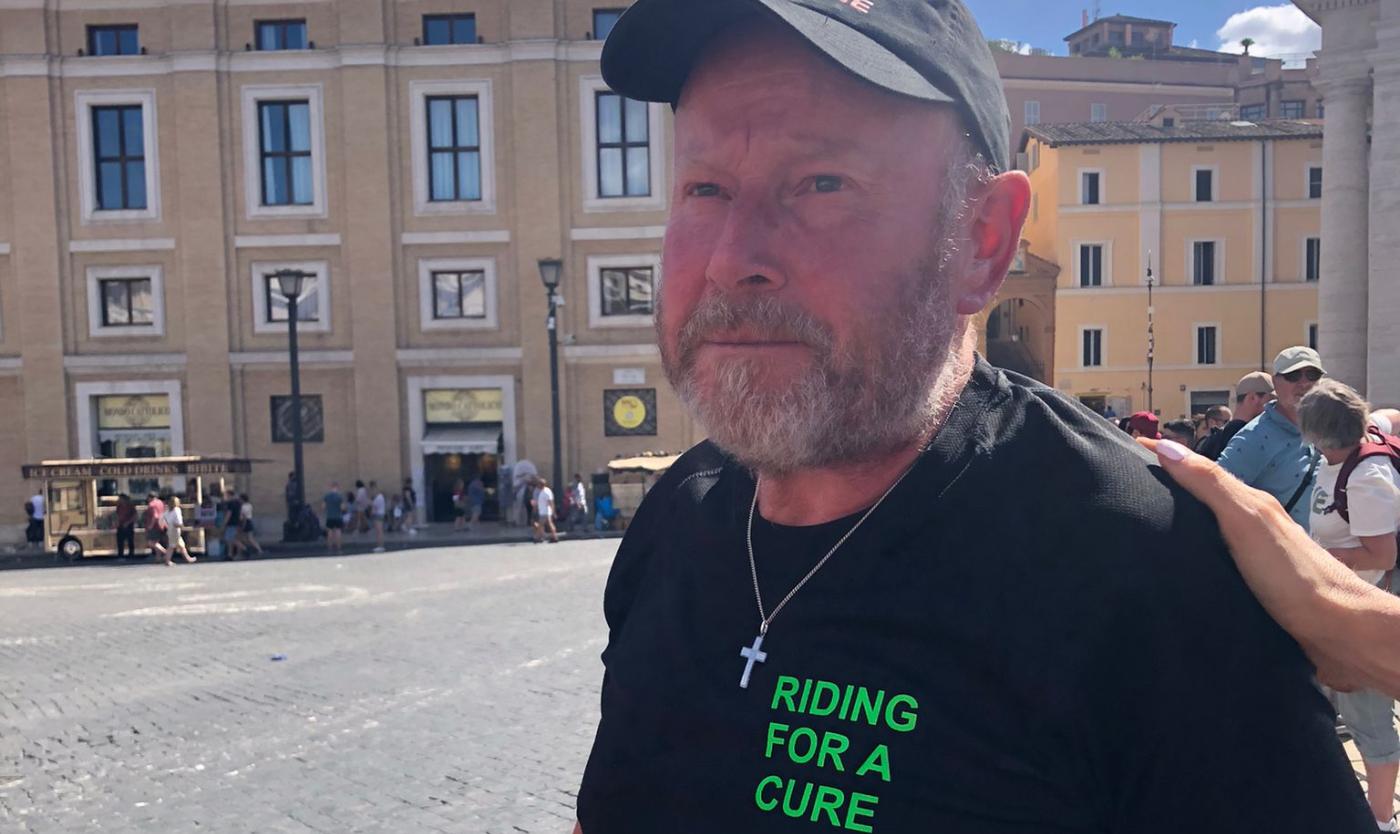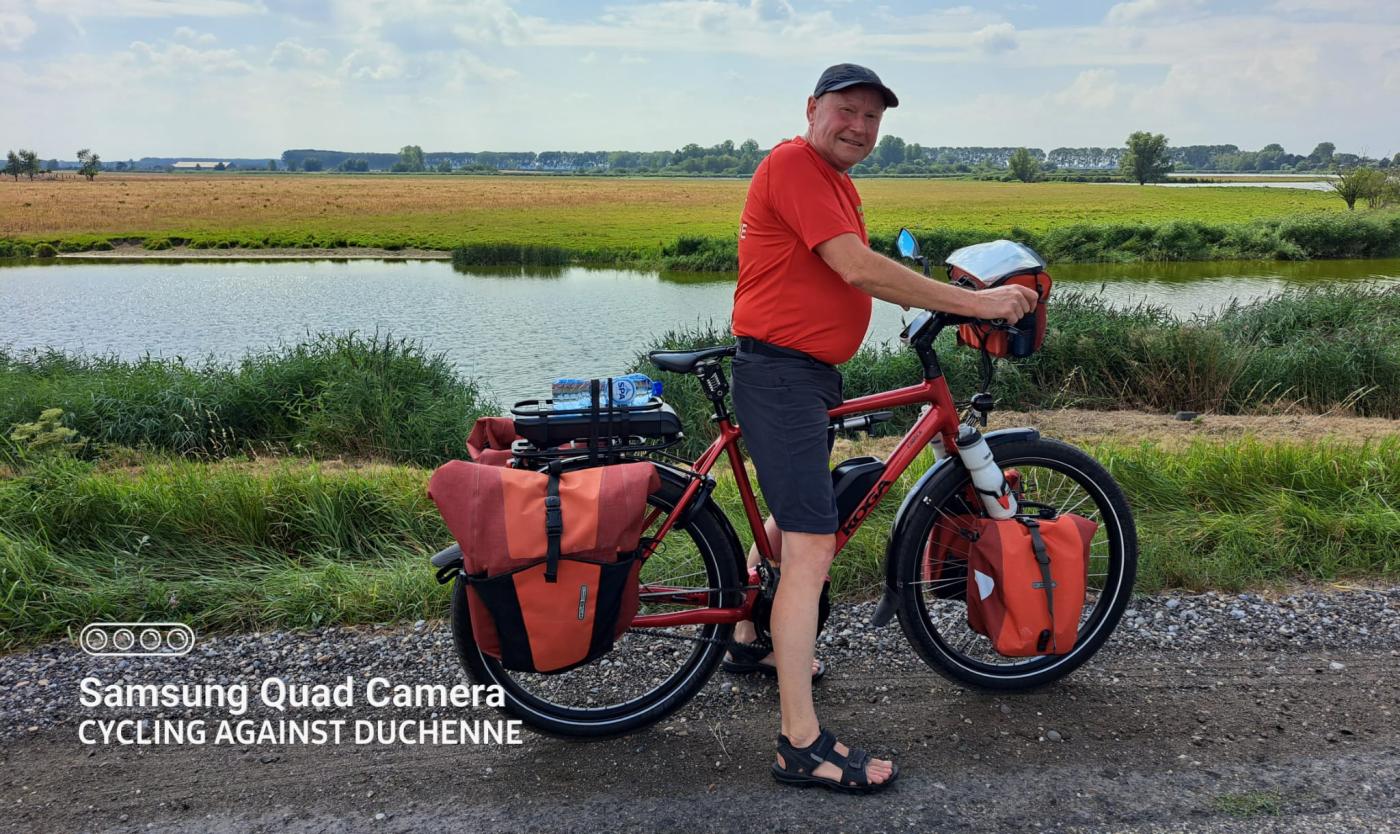
Under the name Cycling Against Duchenne, Luc repeatedly takes to his bike—not just to cover thousands of kilometers, but above all to raise awareness, hope, and much-needed funds. In 2025, he will undertake his most symbolic challenge yet: cycling 7,900 kilometers in 79 days, a reference to the 79 exons that make up the dystrophin gene—the gene that is defective in people with Duchenne. In this candid interview, he shares his emotions, his conviction that scientists will one day find a cure, and his unwavering hope. He talks about the difficult moments along the way, his motivation, and his wish to put a face on Duchenne—for Stan, and for all the children who face this struggle every day.
Luc, can you take us back to the moment you heard that Stan has Duchenne muscular dystrophy? What went through your mind as a grandfather?
"It was a Friday afternoon in March 2018 when I got a call from my son Sander. They had just received confirmation from the hospital that their little boy Stan, then four months old, had Duchenne. What went through me (and my wife) was a feeling of total shock. My world came to an immediate standstill, while the outside world kept spinning as if nothing had happened. It was confronting."
"My world came to an immediate standstill, while the outside world kept spinning as if nothing were wrong."

Stan, Duchenne patiënt, op het lanceringsevent van het Duchenne Fonds in 2023
“You’re cycling an impressive 7,900 km this summer. What is the symbolism behind this, and where do you draw your strength during difficult moments on the road?”
"Regarding the 2025 cycling challenge, I started on June 21 with the goal of finishing on September 7, World Duchenne Day—79 days after the start—and covering 7,900 km by then. Everything is centered around the number 79, which represents the number of exons in the dystrophin gene. This gene is essential for building and maintaining our muscles. These exons are like a train with 79 carriages, but in people with Duchenne, this chain is broken. As a result, their muscles are poorly maintained and gradually deteriorate.
So far, I haven’t had any really difficult moments this year. On my previous rides—around the Benelux, to Santiago, and to Rome—I did, and my stubbornness kept me on the saddle. I also draw strength from knowing that the boys I’m doing this for face challenges far greater than mine, as I spend only a few weeks a year cycling for them, while they are confined to a wheelchair day in and day out."
“What does gene therapy mean to you and your family? How do you view the developments in the research and the future?”
"Gene therapy, for me—whether I am right or not, only the future may tell—represents the path toward treating this muscular disease. Regarding the developments and the future, I feel I can say that the road will likely be long and extremely difficult, but steps are being taken, perhaps not on a regular basis, and each step, however small, is a step forward. I remain convinced that one day scientists will succeed in eradicating this disease from the world."

Luc na aankomst in Rome
"I remain convinced that one day scientists will succeed in eradicating this disease from the world."
“How do you hope people view your action? Are you mainly trying to raise awareness for Duchenne, collect funds, or also convey a message of hope?”
"Above all, I hope as many people as possible pay attention to my action. How should they view it? Perhaps as the effort of someone who doesn’t join the mass events like ‘Kom op tegen Kanker,’ but of someone trying to draw attention to people suffering from a disease that may be worse than cancer—simply because today more and more people can be cured of cancer, whereas so far no one can be cured of Duchenne.
With my actions, I hope to put Duchenne more on the map, to raise awareness, and of course to collect as many donations as possible. I also want to convey a message of hope, because hope is the last thing Duchenne should take from us. The fact that I am organizing this action for the sixth year in a row, in my view, reflects a lasting hope for a cure for this disease in the future."
"Every donation, no matter how modest, is essential to keep the research going, and by donating, people help save lives in the long run."

Luc tijdens zijn dagelijkse rit van 100 kilometer
“What would you like to say to people who are considering making a donation or organizing their own action for Duchenne research?”
"That their donation, no matter how modest, is essential to keep the research going, and by donating, they help save lives in the long term. If people organize their own actions, of any kind, this will naturally benefit the fund and also help raise awareness of Duchenne among the general public. New initiatives would undoubtedly serve as an additional motivation for me to continue on the path I have started."
Do you want to help pedal Duchenne out of the world for good? Support Cycling Against Duchenne with a donation or organize your own initiative. Every euro, every action brings the dream of a cure a little closer. Together, we make a difference.
This project is supported by the VUB Foundation, the fundraising service of the VUB.
What you give to the VUB, you get back.